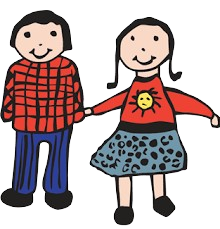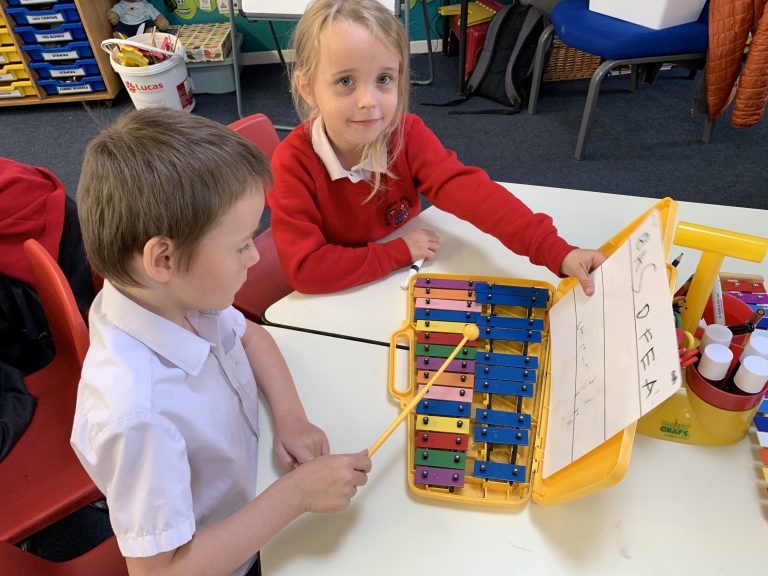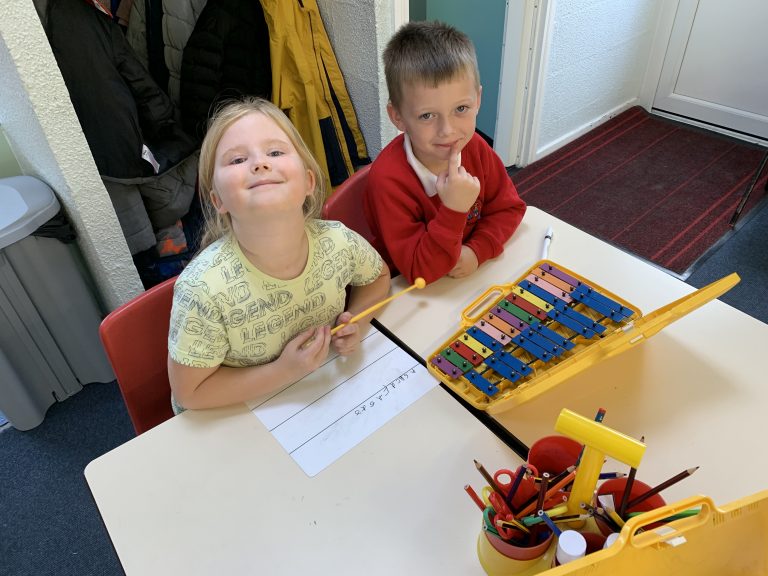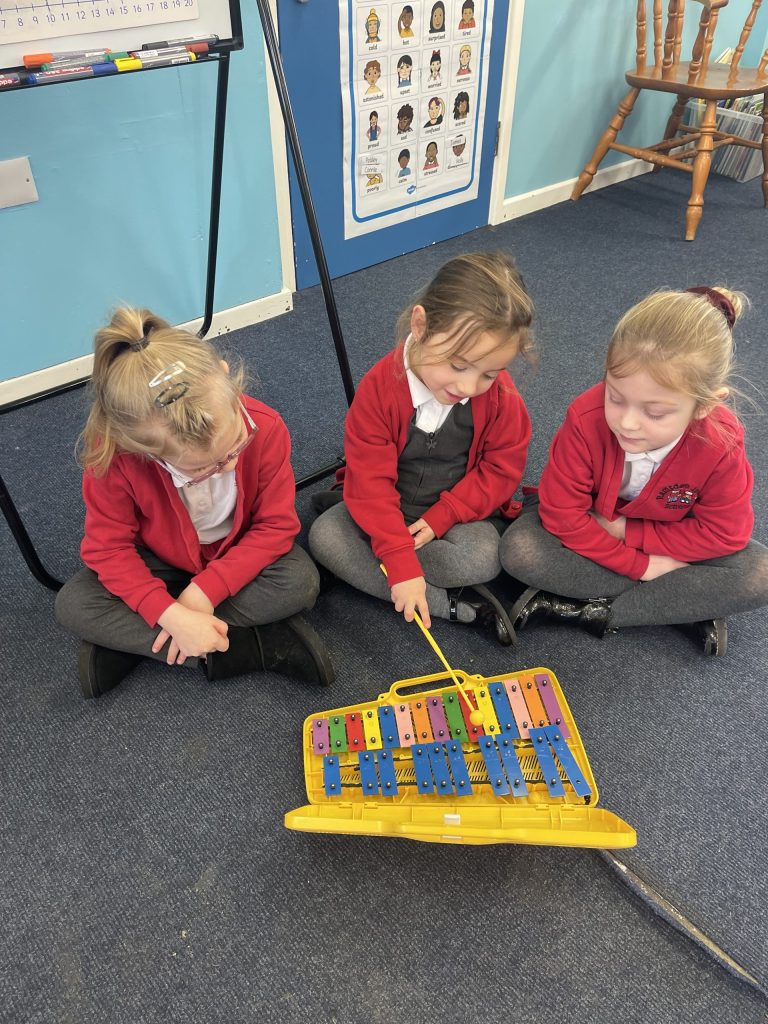Music
At Ramsden we believe that music can improve the development of language, creative and reasoning skills, listening skills have appositive effect on stress and have a calming effect.
|
|
|
We consider music to be a vital component of children’s education. Music involves exploring, singing, performing, composing, listening and appraising different pieces of music. It is also the study of the different musical elements of rhythm, pitch, duration, dynamics, tempo, timbre, texture and structure.
We aim to ensure that all children:
- Perform, listen to, review and evaluate music
- Be taught to sing, create and compose music
- Understand and explore how music is created, produced and communicated
At Ramsden we want every child to embrace a lifelong love of music. We aim to provide a variety of musical experiences to nurture a passion for music both in and out of the classroom.
‘Music gives a soul to the universe, wings to the mind, flight to the imagination and life to everything.’ (Plato)
We aim to:
- Help children develop a response and enjoyment to organised patterns of sound called music and to begin to form opinions and likes and dislikes.
- Allow the children to develop their ability to express their emotions and feelings through music
- Develop skills and concepts necessary for a variety of musical activities
- Develop creativity, social skills, listening skills and awareness of others whilst making music together
- Inspire musical talent or interest in children so they can successfully engage in musical activities, building self-esteem and personal fulfilment
- Give children the opportunity to develop an awareness of musical traditions in a variety of societies and times and begin to understand the influence of music on different cultures
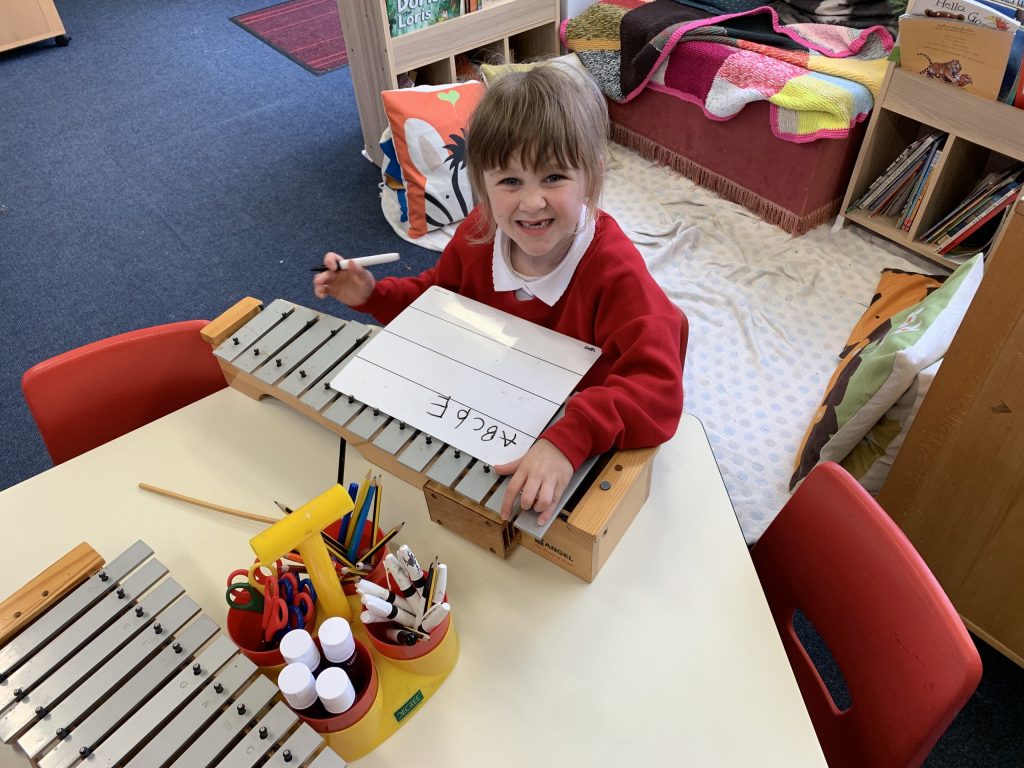
Implementation
Our music curriculum follows the National Curriculum for music. In Key Stage One it is taught once a week, through a primarily practical curriculum based around listening, singing and performing. Children are given opportunities to compose and perform using various tuned and untuned percussion instruments. In Key Stage One we follow the Kapow music scheme which covers the main elements of music; pulse, voice, rhythm, pitch, dynamics and timbre. These units are designed to ensure that children are exposed to a broad vocabulary and range of music types from different time periods and cultures.
Children in Early Years and Key Stage One have the opportunity to play tuned and untuned instruments in annual performances such as Harvest and Nativity, as well as individual class performances.
Children in Year 1 and 2 are encourage to participate in an annual performance organised by the local Music Hub, which is performed at the Forum and watched by family and friends.
Year 1 and 2 are also invited to sing at Greengate Juniors in the Summer term at our annual transition event.
Year 2 are given the opportunity to join a music after school club at the Junior school when they learn elements of music, including playing tuned and untuned instruments.
We have a variety of tuned and untuned instruments for whole school use, as well as a sound system for class performances. We also have iPads to support musical learning experiences.
Impact
Music is predominantly a practical subject so in Early Years and Key Stage one, assessment is done through observations and monitoring. Evidence is recorded against the EYFS Profile statements or the National Curriculum Statements. Children are assessed as working below, above or at the expected standard.
It is our ambition that by the time children have finished their musical journey with us, they have acquired a foundation of musical enjoyment and appreciate with aspirations to continue their musical development at junior school. We recognise the fundamental part music education plays in all elements of a child’s learning and we aim to harness that importance into an understanding and passion for music which children will carry with them for the rest of their lives.
